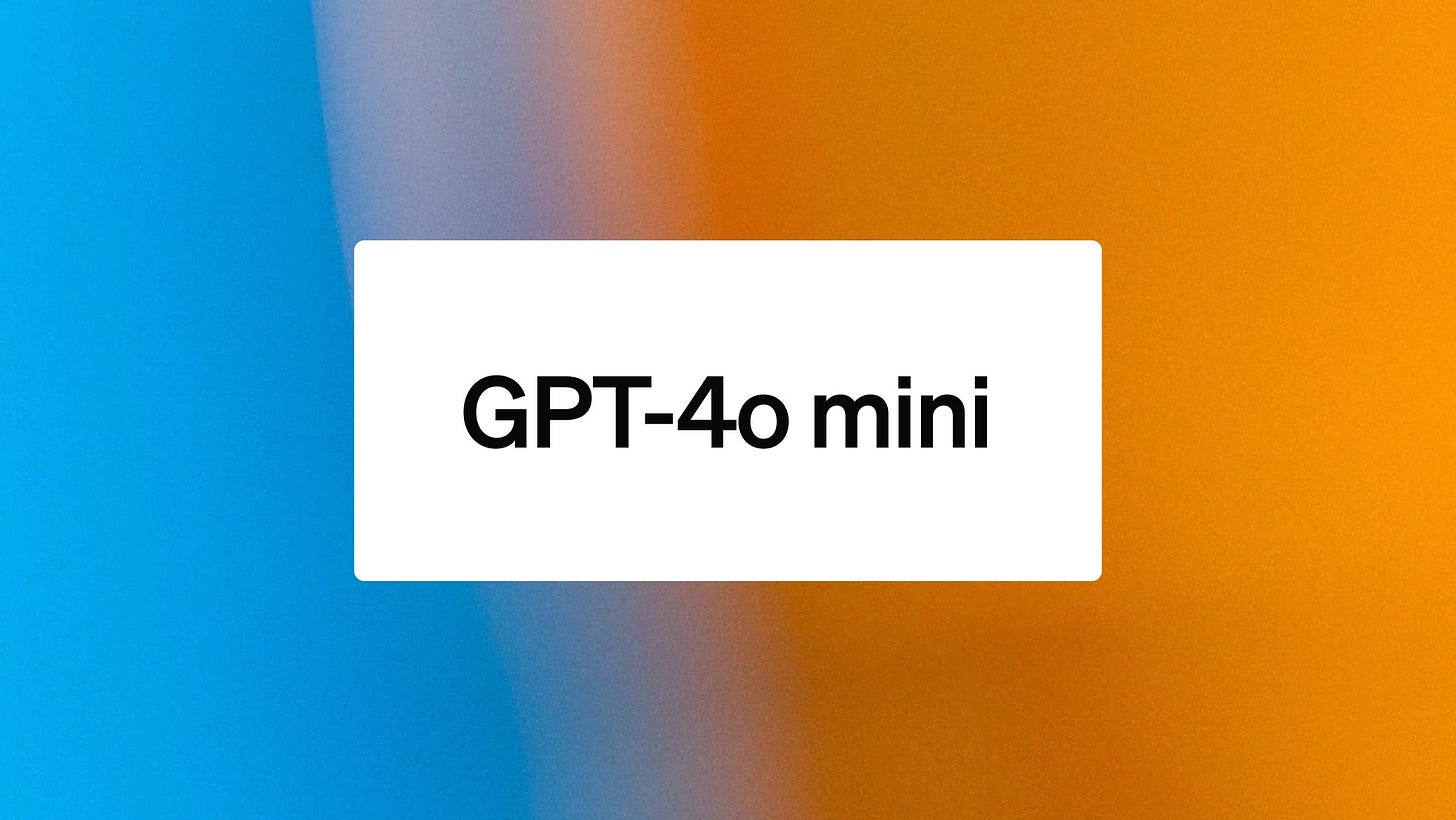AI Roundup 076: Grand theft audio
July 19, 2024.
Grand theft audio
A new investigation has linked thousands of YouTube videos (or rather, their subtitles) to training datasets used by Apple, Nvidia, Anthropic, and more.
Why it matters:
The YouTube videos were scraped without permission and then added to a compilation called The Pile, which was released by the nonprofit EleutherAI.
It's been something of an open secret that YouTube videos have helped power the latest wave of foundation models, but this is the first attempt to trace the specific videos used.
Ultimately, the use of public data is generative AI's original sin - and is why consumers continue to assume the worst when new AI features are launched.
Elsewhere in the FAANG free-for-all:
Google, Microsoft, Nvidia, OpenAI and others formed the Coalition for Secure AI to share info on making ‘secure-by-design’ AI.
Google announced Project Oscar, a way for open-source development teams to use and build agents to manage software programs.
Microsoft’s Designer app launched on iOS and Android with AI editing and creation.
And as Google becomes the "official AI sponsor for Team USA," Gemini AI will be all over the Paris Olympics.
Elsewhere in AI anxiety:
A new study found that GPT-4 boosted creativity for individual writers, but dampened the creativity of the group as a whole.
A proposed exemption to the DMCA would give researchers safe harbor to jailbreak AIs in order to expose training biases and inaccuracies.
Figma explained how its AI tool (unintentionally) ripped off Apple’s design.
And a "hacktivist" group critical of AI art leaked Disney's internal Slack messages over its handling of artist contracts.
Mini models
OpenAI launched GPT-4o mini, a smaller, cheaper variant of GPT-4o.
The small big picture:
GPT-4o mini is meant to replace GPT-3.5 Turbo as OpenAI's fastest and cheapest model (but not smartest). Though 4o mini offers multimodality (images today, audio/video coming soon), which 3.5 Turbo did not.
The model echoes similar releases from Gemini and Anthropic, which have focused on speed and cost rather than reasoning capability.
This could be due to customers pushing for cheaper models, but it also begs the question: are LLMs approaching a plateau? (Probably not.)
Elsewhere in frontier models:
Mistral released not one but three models this week: MathΣtral (for math), Codestral Mamba (for code), and NeMo (for larger context windows, in partnership with Nvidia).
Microsoft researchers unveiled “SpreadsheetLLM,” a new model and encoding method designed to understand and work with complex spreadsheet data.
And Meta reportedly plans to release a version of Llama 3 with 405B parameters and multimodal capabilities sometime next week.
Elsewhere in OpenAI:
OpenAI research details a strategy for LLMs to write more understandable text and explanations.
Strawberry may be the new name for OpenAI's new reasoning architecture, which previously went by Q*.
And The Information reports that OpenAI has talked to chip designers about developing its own AI server chip.
VP of AI
As the Republican National Convention winds down, we're getting a clearer look at the GOP's AI policy.
Between the lines:
First and foremost is Trump's VP pick, J.D. Vance. He has supported FTC Chair Lina Khan's antitrust moves against Big Tech but still favors a hands-off approach to regulating AI.
Some of the e/acc crowd are already celebrating the VP nominee, while some big AI VCs are lining up behind Trump (Vance was, among many things, previously a venture capitalist).
More broadly, Trump's allies are drafting an Executive Order to roll back Biden's AI regulations and launch a series of "Manhattan Projects" to develop military technology.
Elsewhere in AI regulation:
China's Cyberspace Administration is relaxing some policies to promote economic growth while overseeing AI and data rules.
EU regulators are investigating Google's deal to pre-install Gemini Nano on Samsung phones.
The UK CMA opens a formal investigation into Microsoft's Inflection AI investment.
And Meta suspends its generative AI tools in Brazil and plans to withhold future multimodal AI models in the EU in the face of regulatory scrutiny.
Things happen
Fujitsu makes a significant investment in Cohere to build Japanese-language LLMs. Andrej Karpathy unveils Eureka Labs. Sam Altman and Arianna Huffington discuss their AI health coach startup. Universities race to stay relevant in AI research. SAP AI vulnerabilities expose customers' cloud environments. Bhutan's first AI startup is seven college kids in a dorm. Proton Mail adds an open-source AI writing assistant. Google tests Gemini AI-created video presentations. AI system achieves 96% accuracy in determining sex from dental X-rays. Experts say AI benchmark tests are close to meaningless. CMU launches new initiative for Human-Centered AI. Intel's VC arm is one of the most active foreign investors in Chinese AI startups. Google's Jeff Dean says AI is not to blame for data center emissions increase. Generative AI hype cycle is hitting the trough of disillusionment. Tinder can now pick your dating profile picture for you. OpenAI CEO Sam Altman's $27 million mansion is allegedly a 'lemon'. The 'godmother of AI' has a new startup already worth $1 billion. Critics say the EU's AI Act is undercooked. US FTC informally inquires about Amazon's deal with AI startup Adept. YouTube Music tests "AI-generated conversational radio" for Premium users. The golden age of scammers.







